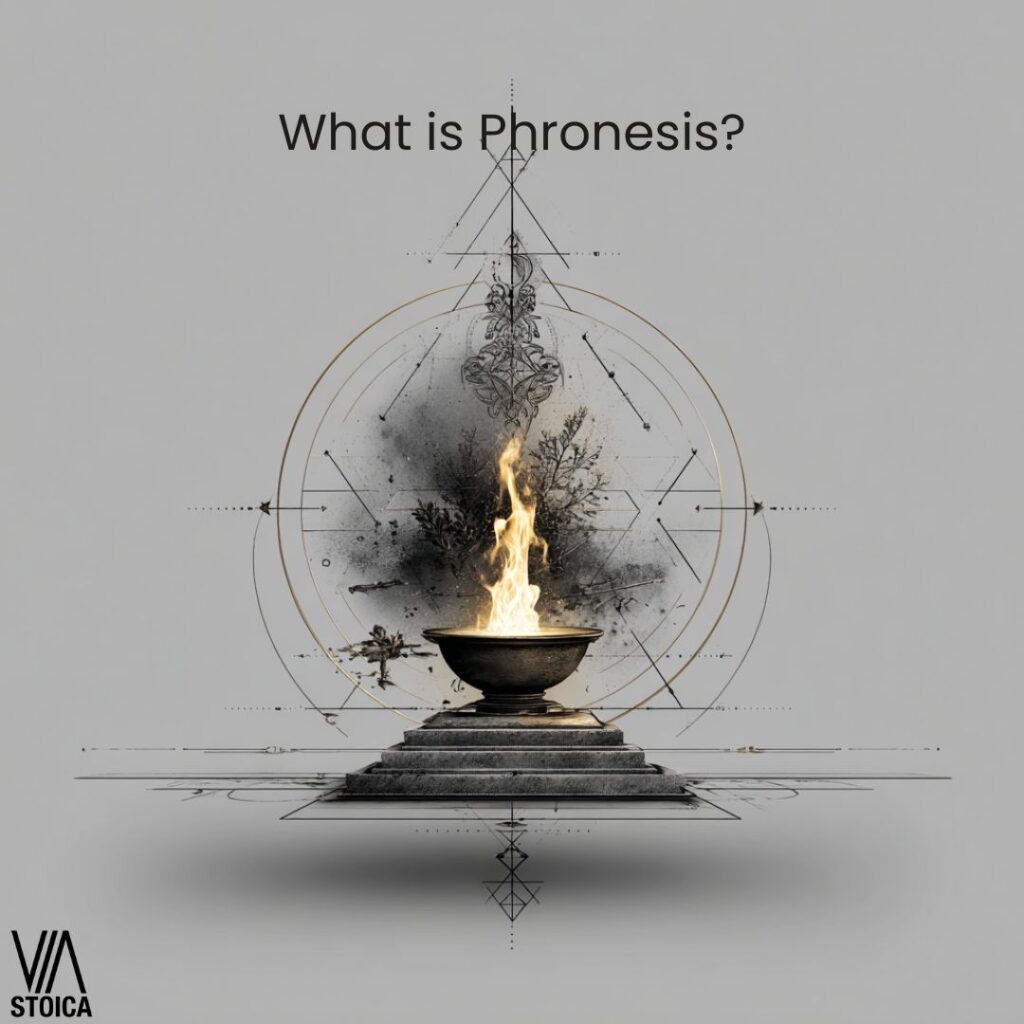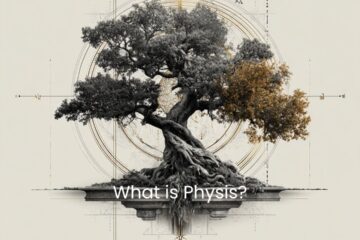
What Is Phronesis?
Phronēsis in Stoicism is practical wisdom, the ability to judge clearly, act rightly, and see what a situation requires. In Stoic thought, what phronēsis comes down to is living with steady reason in every circumstance, not just knowing the right thing but doing it.
The Stoics considered phronēsis the skill that turns philosophy into action. It matters today because most of our daily confusion, stress, and conflict comes from failing to pause, interpret, and choose wisely.
Breaking Down the Word
φρόνησις (phronēsis) comes from the Greek verb phroneō, meaning to think, to be minded, or to use understanding.
Literal and philosophical meanings:
- “Sound judgment” — seeing things as they are, not as fear or desire paints them.
- “Practical intelligence” — applying reason to real situations.
- “Moral insight” — understanding what is good, appropriate, and aligned with virtue.
The Stoics used this term to describe a way of thinking that is stable, calm, and rational, the mindset that allows a person to navigate life without being overwhelmed by emotion or impulse.
Key Dimensions of Phronēsis
- Clear perception of reality. You train yourself to see events without distortion, exaggeration, or panic.
- Right judgment in the moment. You evaluate impressions before acting, a cornerstone of Stoic ethical training.
- Consistency between thought and action. Wisdom is expressed not in ideas but in behavior.
- Orientation toward virtue. Every decision is guided by what is honorable, just, and reasonable.
Core Stoic Principles Connected to Phronēsis
- Logos (reason). Phronesis is the human participation in universal reason.
- Arete (virtue). For the Stoics, practical wisdom is inseparable from moral excellence.
- Physis (nature). Acting wisely means acting in harmony with the rational structure of nature.
- Sophia (wisdom). Phronesis is the day-to-day expression of wisdom, the applied form of theoretical insight.
Modern Misunderstandings
Phronesis is not instinct, talent, or a gut feeling. It is not cleverness or mental sharpness.
Modern culture often treats wisdom as abstract knowledge, but Stoic phronēsis is deeply practical. It is closer to emotional clarity and moral steadiness than to intellectual achievement.
Another misunderstanding is to confuse wisdom with experience. While experience can help, the Stoics insist that only correct judgment creates wisdom. Without reason, experience becomes repetition, not learning.
Why Phronesis Is Central to Stoicism
Marcus Aurelius often reminds himself that the value of a moment lies in responding to it with clarity and reason, not emotion. Seneca calls wisdom “the art of life.” Modern scholars confirm that phronēsis is the operating system of Stoic ethics, the capacity that turns impressions into right actions.
Understanding phronēsis strengthens your daily practice because it teaches you how to move from automatic reaction to deliberate choice.
Practical Applications of Phronēsis
- Pause Before Assent. When an impression arises, take one breath before judging it, a core practice in the Stoic Discipline of Assent.
- Daily Journaling. Ask: What did I misunderstand today? What did I judge clearly? Write one sentence for each.
- View from Above. When stressed, zoom out mentally to gain perspective, a practice explained in our article on the Stoic View from Above.
- Clarify the Next Action. Wisdom is practical. Reduce the situation to the next right step and take it without hesitation.
FAQ
What does phronesis mean in Stoicism?
Phronēsis means practical wisdom, the ability to judge and act with reason.
How do Stoics practice phronesis?
They pause before assent, examine impressions, and choose actions aligned with virtue.
Why is phronesis important in Stoicism?
Because without practical wisdom, no other virtue can be consistently lived out.
Conclusion
Phronēsis is the Stoic skill of living well, clear seeing, steady judgment, and action guided by virtue. It helps you respond to life’s challenges with calm clarity instead of impulse or confusion. When you practice phronesis, you turn Stoic ideas into habits, and habits into character. Use it daily. Let it shape how you think, decide, and act.
Want to explore more Stoic practices?
Book a free consultation with one of our Stoic Coaches or learn about more Stoic philosophy terms. You can also listen to the Via Stoica podcast on Spotify or Apple Podcasts or watch it on YouTube.
Author Bio
Benny Voncken is the co-founder of Via Stoica, where he helps people apply Stoic philosophy to modern life. He is a Stoic coach, writer, and podcast host of The Via Stoica Podcast. With almost a decade of teaching experience and daily Stoic practice, Benny creates resources, workshops, and reflections that make ancient wisdom practical today.



0 Comments